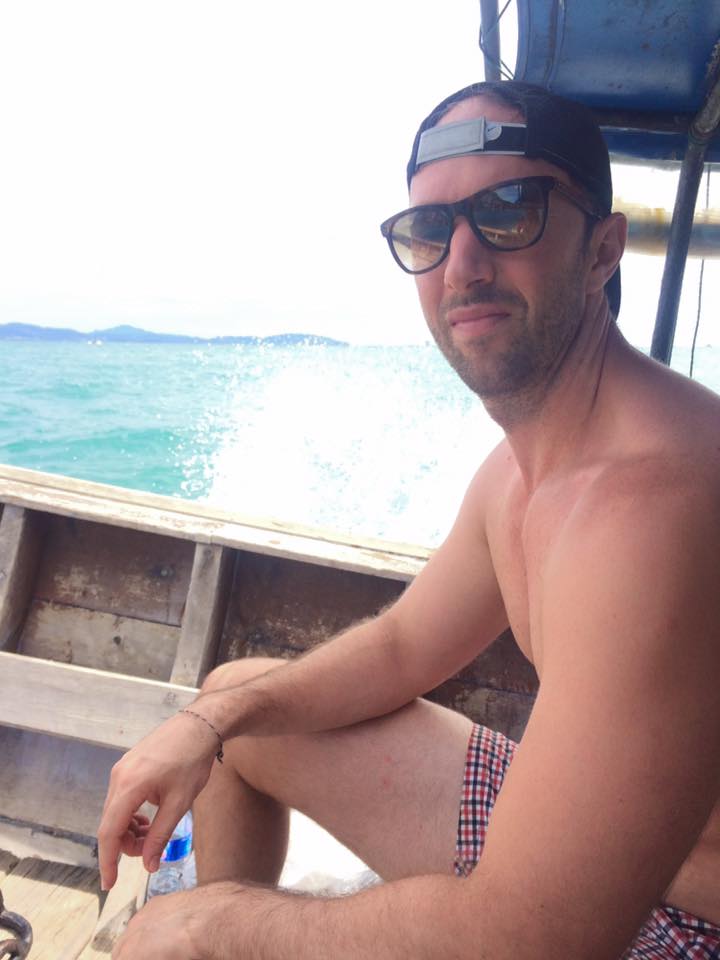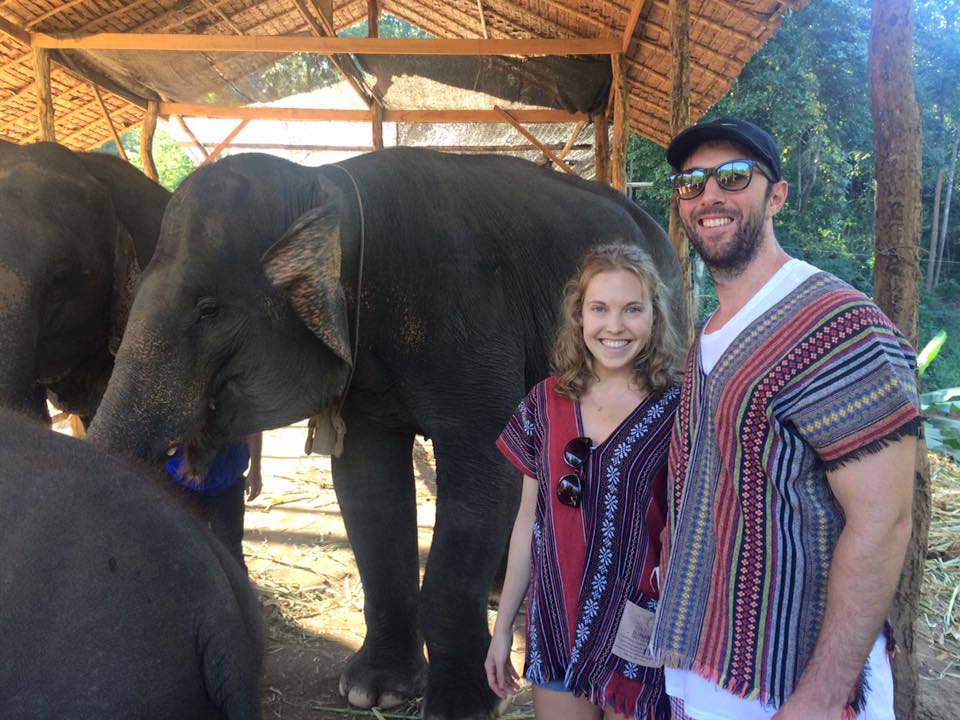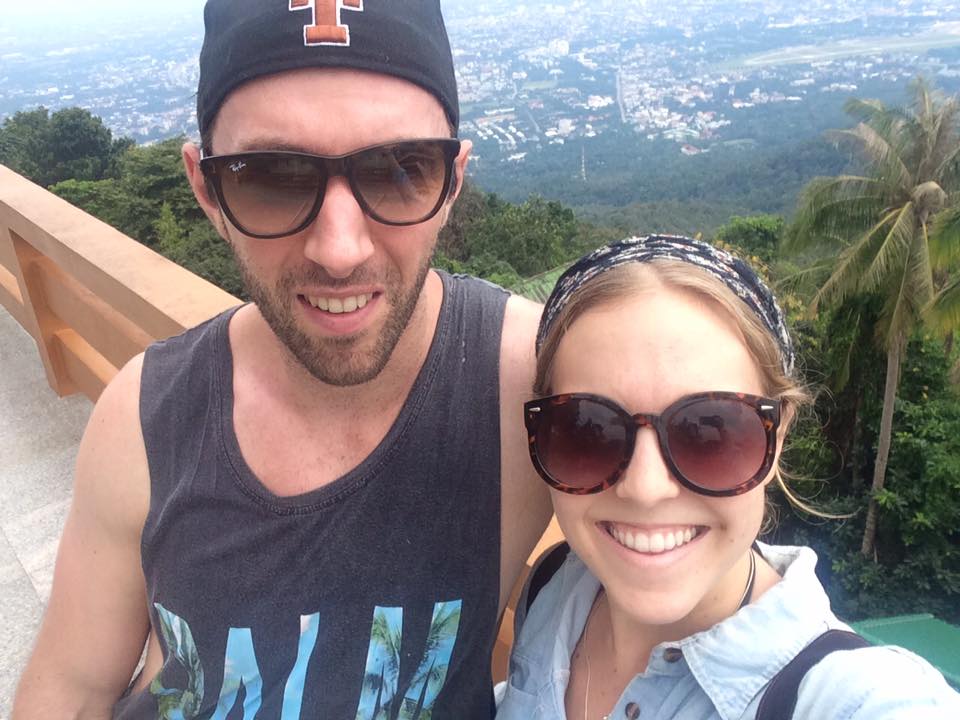1. Hey, can you please introduce yourself?
Sure can… I’m Seb Kipman, Head of Communications at Workpuls, currently based in Australia. Right now, my main focus is on helping our largely Serbian-based team grow Workpuls, a workforce productivity and analytics platform. We’ve been fortunate to have grown 600%+ over the past 12 months by supporting companies switching to remote and hybrid work arrangements.
Beyond my work at Workpuls, I’m also a direct response copywriter who has helped generate millions in sales for hundreds of clients, including publicly listed companies, Silicon Valley tech startups and 9-figure companies.
In my former life I was Communications Manager at Cricket Australia (for your American readers, it’s equivalent to the NFL or NBA, but for cricket). Working in pro sports was great at times. Travelling all over the world, “work” consisting of going to sporting events and working with athletes I’d grown up fan-boying over. But, when you stripped all that back, it was still a job with limited upside and little control over my time, lifestyle or location.

2. What motivated you to choose remote working?
It was a combination of things. Fear of a life spent in the corporate world. An insatiable desire to travel. And an American girlfriend whose visa was fast running out in Australia (The things you do for love, right?) Plus, throw in all the cliches too… I wanted more freedom, control and a better lifestyle.
Looking at the big picture behind the decision, it was what I’ve since learnt to define as “regret minimization” (One of Jeff Bezos’ favorite frameworks). I remember thinking at the time “What will I regret more, staying put and working my way up the corporate ladder?”. After thinking about it, the answer was clear and resounding.
Once I made up my mind, I had to pitch the idea to my girlfriend. Being used to briefing executives and athletes for media interviews, I created a list of “key messages” that I was going to deliver to my girlfriend to convince her that we should go remote.
I was prepped for the pitch. I had a notepad full of core selling points. Everything was in place. I was ready to counter any opposition… Then, before I’d barely finished uttering the question “How would you feel about moving to Thailand?” She had already said yes. None of my perfectly crafted key messages were needed…

3. What were your initial months like? Did it live up to your expectations?
I got really sick when I landed in Chiang Mai, Thailand. So, things got off to a bumpy start. Turns out my soft Western constitution wasn’t quite prepared for the move. Once I rose from my sickbed (with help from Thailand’s amazing, cheap private healthcare), there was a bit of an adjustment period.
My mental muscle memory was used to working 9-5. Meanwhile my subconscious was screaming “I’m in Thailand, that means I’m on holiday!”. So, there were a few weeks of calibration. The checkpoint that really helped me plug into the remote lifestyle was joining a coworking space. Once signed up there, and with an apartment secured, I felt settled really quickly.

Thinking back, I don’t know that I had any clear expectations about remote work itself. It didn’t go much deeper than “I’m done with the corporate world. This concept of working remotely sounds cool. Let’s go see if we can make it work.” Turns out it did…
4. How did you find remote working roles?
Initially, it was through contacts from my previous job and Upwork. Early on, there was a fair bit of “grin and bear it” type stuff where I took on projects that weren’t the best fit for my skill set and lowered my rates to get more clients through the door. I was also working on a side business project at the time, so I was splitting my time between that and client work.
The plan was always to give ourselves a longer runway by making our first stop somewhere really affordable like Thailand. Thankfully, over time, work began to compound and reached a point where I had built a steady flow through repeat clients and referrals, so I no longer had to go looking for it.

My current work at Workpuls came about because I had previously worked with our COO on a blockchain startup for a couple of years. And we’ve worked together on multiple projects since then.
5. What have been the best, good and worst aspects of remote working for you?
No huge revelation here but the best aspects are the awesome people you meet, new cultures and the greater freedom and control. Thinking a bit more meta, the way the experience has completely shifted the concept of work has been legitimately life changing. Why would anyone work in an office when these opportunities exist? Sure, I know there are legitimate reasons to. But, if you don’t want to, the opportunity to no longer work in an office has never been so accessible.
To put it simply, remote work has led me to be in a far better place than when I was when I worked in the corporate world. I work far less, earn more, and have infinitely more freedom and control of my time. And about 1% of the stress. I’m so much happier than I was in my corporate days and, ultimately, isn’t that the goal for all of us?

The good was our attempts to immerse ourselves as much as we could in the local culture of Thailand. (Well, as much as a 6’4 Australian can…). This included taking language lessons. I label this only as “good” because we were terrible at it. It’s an insanely difficult language to learn.
The downsides – and none are insurmountable – are sometimes experiencing isolation, being away from family, meeting awesome people then not seeing them for years (or ever again) and, in a couple of places we visited, the weird cultish feel of some nomad communities.
6. What tools do you swear by while working remotely?
I use the stock standard remote toolkit of Slack, Zoom and Loom each day.

Slack and Zoom need little explanation. Slack for communicating with our team and the critically important task of sending a steady flow for memes. Zoom for regular catch-up calls and meetings with the team.
When briefing team members on projects and with the creative work that I do, Loom is super valuable. It makes it so easy to communicate ideas, explain strategy, and give/receive feedback. Side note: When a long Loom video comes back from a client, it always fills you with doom (Loom Doom?) because it usually means lots of changes are needed.
My noise cancelling headphones are a must when working in coworking spaces. I’m fanatical about sleep, too. So, when travelling and working remote work, earplugs, an eye mask and blue light blocking glasses are must-haves.
7. Your most exciting/ hilarious experience since you started working remotely.
We spent about a month up north in Vietnam in Danang because I wanted to get better at surfing (That’s right, despite common perceptions, not all Australians know how to surf.)

Anyways, it was incredible. I had about a two-mile stretch of beach entirely to myself and my surf instructor. There was no competing for waves. No intimidating pros. Just me, my thoughts and the waves… I had the complete freedom to faceplant off my board with no one around. So rare was the presence of a tall, gangly Australian, people were stopping to take photos with me on the beach.
After about my fourth session, I was starting to improve. By now I could stand up for what felt like minutes but, in reality, was more likely seconds. But my World Surfing Tour dreams came crashing down soon after… I came home after one of my sessions and tried to get back to work. My right wrist began to ache. Then ache some more. Then it turned into a full-blown pain up my arm. I was sure it was broken, so I jumped in a taxi and took myself to the local hospital.
My girlfriend ended up in a separate taxi, scrambling across town looking for me at different hospitals. Meanwhile, I was sent in for an X-ray – still holding my phone and all my belongings, mind you – before finally being discharged from hospital with the diagnosis that “Not sure what the problem is, maybe ligaments. But not broken”.
8. What is your golden advice to a new remote worker?
Start with the basics. Get clear on what you need to get your work done. You don’t truly appreciate fast internet, a comfortable chair and workstation until you’re working from a rickety stool at a kitchen bench, cursing the 7 hours it takes to upload an 80mb video.
If you don’t have work lined up before you go, make sure you calculate the amount of personal runway you’ll need to survive for six months in the location you choose. For people who are setting off – or thinking about it – without work locked in, my advice is to learn a marketable skill that you can use no matter where in the world you go. For me, this is copywriting.
A marketable skill could be anything like coding, PR, writing, design. It doesn’t matter what, just something that will always be in demand and have people willing to pay for it. Ideally something that a) pays well, b) is recession proof, and c) isn’t likely to be made obsolete by AI in the near future.
If you’re working remotely in new countries, also remember to get out and experience them. That’s something I was guilty of not doing. I became too obsessed with work and, at times, didn’t venture out and enjoy the countries I was in enough.
Beyond that, make sure advice you are taking is coming from someone in the position you want to be in (E.g. if that’s not me, don’t listen to me). Also, remember, if you listen to advice long enough, it’ll all cancel itself out. So, at some point, you’ve just got to take the leap (and be willing to fall on your face now and then).
9. How do you see your career shaping up and your goals?
The goal from the beginning has been to run my own business. I’ve launched a few projects in parallel with my remote work along the way, with varying levels of success but no home runs. I’m currently working on a couple of business projects at the moment aside from my remote work to this end.
I may be different to most in your audience, but remote work for me is the intermediary step between corporate work and running my own business. Don’t get me wrong. I love remote work. It provides an incredible lifestyle. But my long-term goal is to build something bigger. It’s more than likely that what I build will still involve remote work. Just in a different form – and hopefully this will give me the opportunity to provide more remote work opportunities to others.
In the near-term, my focus is continuing to help our team at Workpuls grow – we’re riding some great momentum right now, and it shows no signs of slowing up anytime soon.
10. How do you expect remote working to evolve in the future?
Really going out on a limb here, I know… but it’s going to be a mainstay of modern work. Everyone who got a taste of remote work during the pandemic will come to expect it more. Those who were already working remotely pre-pandemic will double down now their choice has been vindicated even further. And, for future generations of employees, remote work will be a base-level expectation, not a perk.
Given a lot of company leaders will continue to want to maintain some form of physical HQ, I think remote work will be part of a broader trend toward hybrid work. That is, teams made up of remote and in-office employees. I also believe that employers will become increasingly detached from the idea of set working times. They will be more conscious of the times of the day that remote workers are most productive, and allow them to work then. Rather than during set time periods.
At a more macro, ecosystem level, with the increasing trend toward remote work, I think areas like tax status, insurance, residency and healthcare are going to be huge areas of interest, where there’s going to be even more innovation and demand. Muddy waters to tread, but get through the silt, and they’re filled with big opportunities.
11. Where can we follow you on?
I’m pretty much inactive on social media. So, unless people want to read Tweets from 2012, the best bet is via email (sebastian.kipman@workpuls.com) or LinkedIn.
You can also see what we’re working on at www.workpuls.com